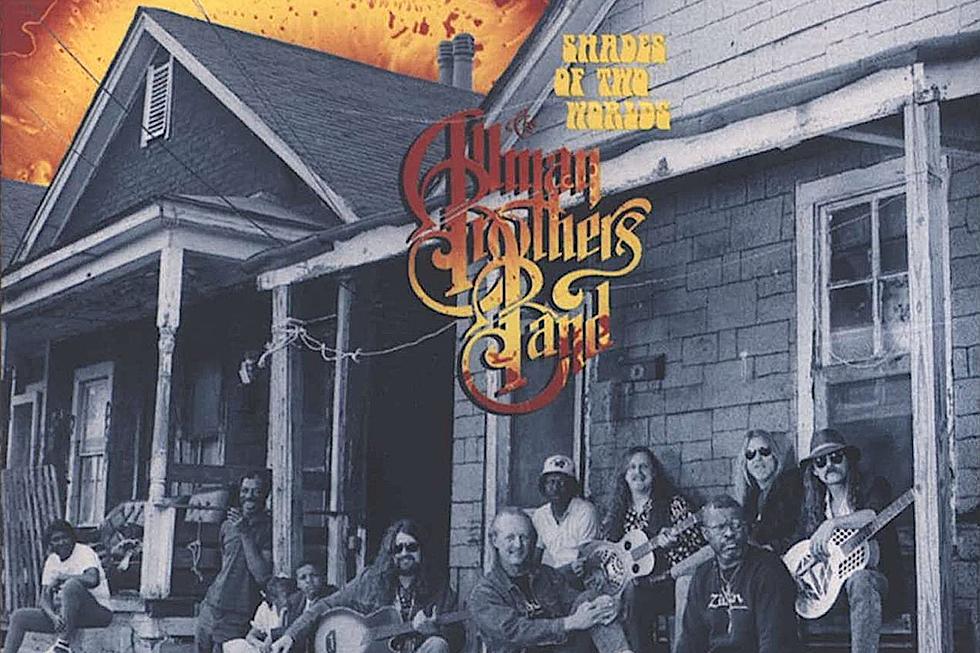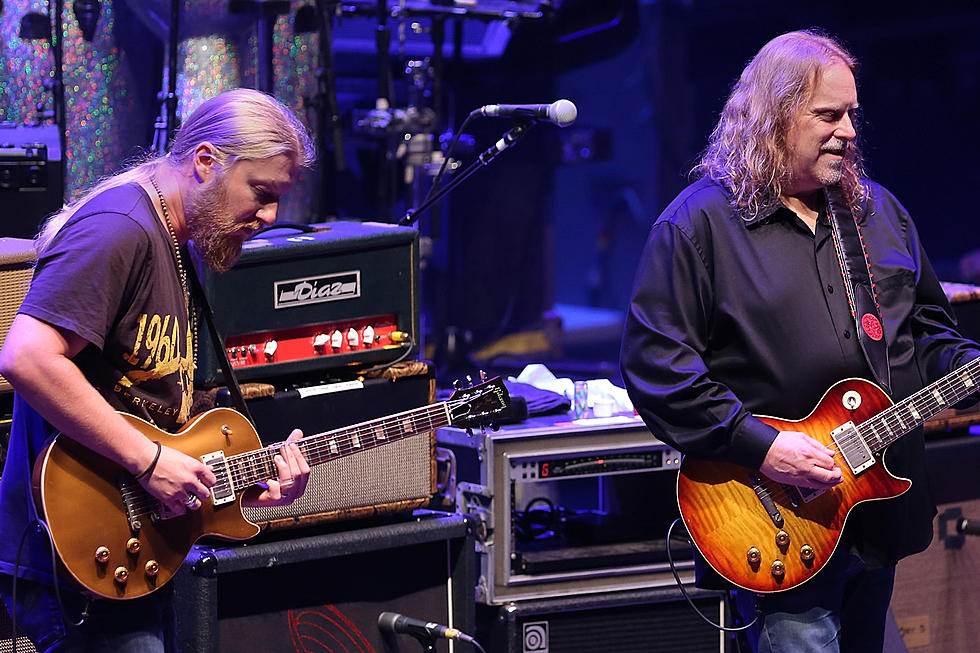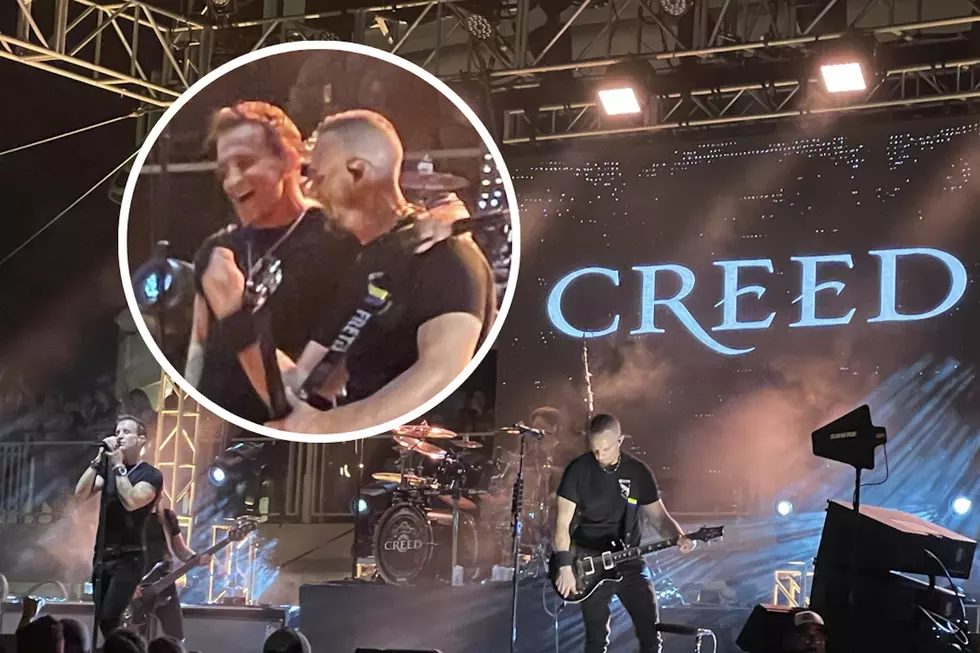
30 Years Ago: Allman Brothers Band’s ‘Shades of Two Worlds’ Reaches Old Heights
The Allman Brothers Band had reestablished themselves after launching a third era with 1990's well-received Seven Turns, but something was still missing. Well, actually, something had to go.
They discovered this after parting ways with piano player Johnny Neel, a more recent recruit. Subsequent touring dates in Japan featured the same six-member format as the Allman Brothers Band's initial 1969-76 tenure, and a similar feeling returned.
"There was just so much freedom, so much space," cofounder Butch Trucks told the Los Angeles Times in 1991. "For the first time since Duane [Allman] and Berry [Oakley both] died, there was a group of guys all going in the same direction, all feeling the same type of music and energy. It really [had been] a problem since that long ago."
Trucks and fellow surviving original members Gregg Allman, Dickey Betts and Jai Johanny Johanson rushed into the studio with modern-era additions Warren Haynes and Allen Woody. Shades of Two Worlds, released on July 2, 1991, perfectly captured this exciting throwback sound.
On Seven Turns, "we just weren't familiar enough with each other yet to take the kinds of chances we do on this record," Trucks added. "We had another year to get to know each other."
Listen to the Allman Brothers Band's 'Kind of Bird'
For their part, Haynes and Woody knew how high the standards were. "It was a hot damn seat, pal," Woody told the Chicago Tribune in 1991. "Warren and I talk about this all the time, because he came into Duane's slot and I'm walking in behind Berry Oakley and Lamar Williams. We knew we were gonna be compared to our predecessors, but we couldn't be daunted by that."
Rooting themselves in tradition also set this lineup apart from the band's doomed second edition, which saw what became a more pop-leaning 1978 comeback bid fizzle a couple of years later. Shades of Two Worlds would instead hearken back to the lengthy improvisational excursions found on 1971's At Fillmore East, the last complete recording featuring Duane Allman.
"That was [in] our discussions before anything was written," Trucks told the Times. "Go back to play the way the Allman Brothers play. Write songs that are like what we do on stage, like 'Whipping Post' and 'Elizabeth Reed' – the songs we love to play onstage year after year."
Betts' "Nobody Knows" clocked in at a robust 11 minutes; the Charlie Parker-inspired "Kind of Bird," which he cowrote with Haynes, stretched to nearly 8:30. Gregg Allman opened the album with "End of the Line," an emotional look back at the troubles they'd seen. ("At times my luck was so bad," he sighs, "I had to fold my hands.") Then Allman went deep down in the blues on "Get On With Your Life."
Of course, they risked repeating themselves. "Nobody Knows," for instance, bears an uncomfortable resemblance to "Whipping Post," right down the time signature. But Betts – who wrote or cowrote five songs on Shades of Two Worlds, while also arranging the album-closing cover of Robert Johnson's "Come On in My Kitchen" – brushed off such criticism. After all, it had come from a very honest place. That, too, was like the old days.
"'Nobody Knows' is one of the best lyrical songs I've ever written," Betts later told Guitar World. "These are nice, abstract, poetic lyrics. I wrote that about as fast as I could write the words down, at 4:30 in the morning after rehearsal."
Listen to the Allman Brothers Band's 'Nobody Knows'
Its similarity to a certain legendary Allman Brothers Band song was actually no accident: Returning classic-era producer "Tom Dowd had said, 'We could use a tune as heavy as 'Whipping Post' for this record,'" Betts added, "and I thought, 'Man, that's a tall order!' I sat down and those words just started flying out. In 30 minutes I'd written the whole thing - like I was writing a letter to someone."
Haynes tended to inject new life in everything around him – notably on the Betts cowritten protest song "Desert Blues" which provided timely commentary on the Persian Gulf War. Still, arriving so far removed from their jam-band heyday, the No. 85-finishing Shades of Both Worlds didn't exactly fly off store shelves. The specter of another breakup also remained, to the point that worried new label bosses insisted the Allman Brothers Band enter the studio before their first reunion tour. They were concerned that the group wouldn't survive a lengthy road trip.
Trucks again took the long view. "It's gonna last as long as it's working. It could be a week, it could be 10 years," the late drummer said in 1991. "We're making plans a year ahead, with no end in sight. But in this kind of business, you never know what's going to happen. The bus might flip over tonight."
Metaphorically speaking, it soon did. Haynes and Woody left after one more album to focus on the Allmans-offshoot band Gov't Mule; the subsequent Where It All Begins also marked the group's final studio project with the fiery Betts. Haynes ultimately returned to the Allman Brothers Band, but by then Woody had overdosed on heroin.
"Kind of Bird" would become perhaps the last song performed by Woody, who took part in an acoustic version with Gov't Mule in an Omaha, Neb., television studio just days before he died.
Allman Brothers Albums Ranked
More From 94.1 KRNA










